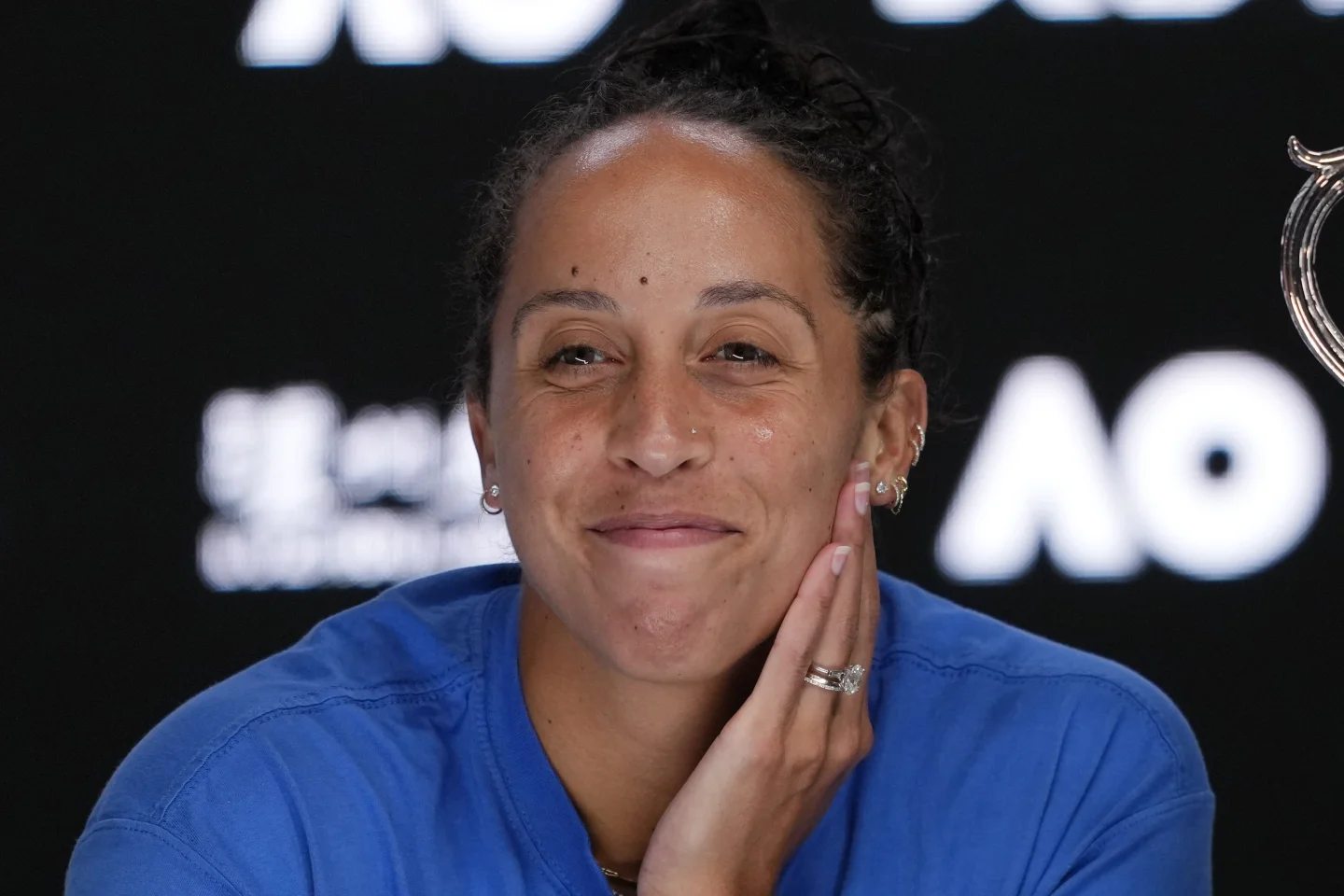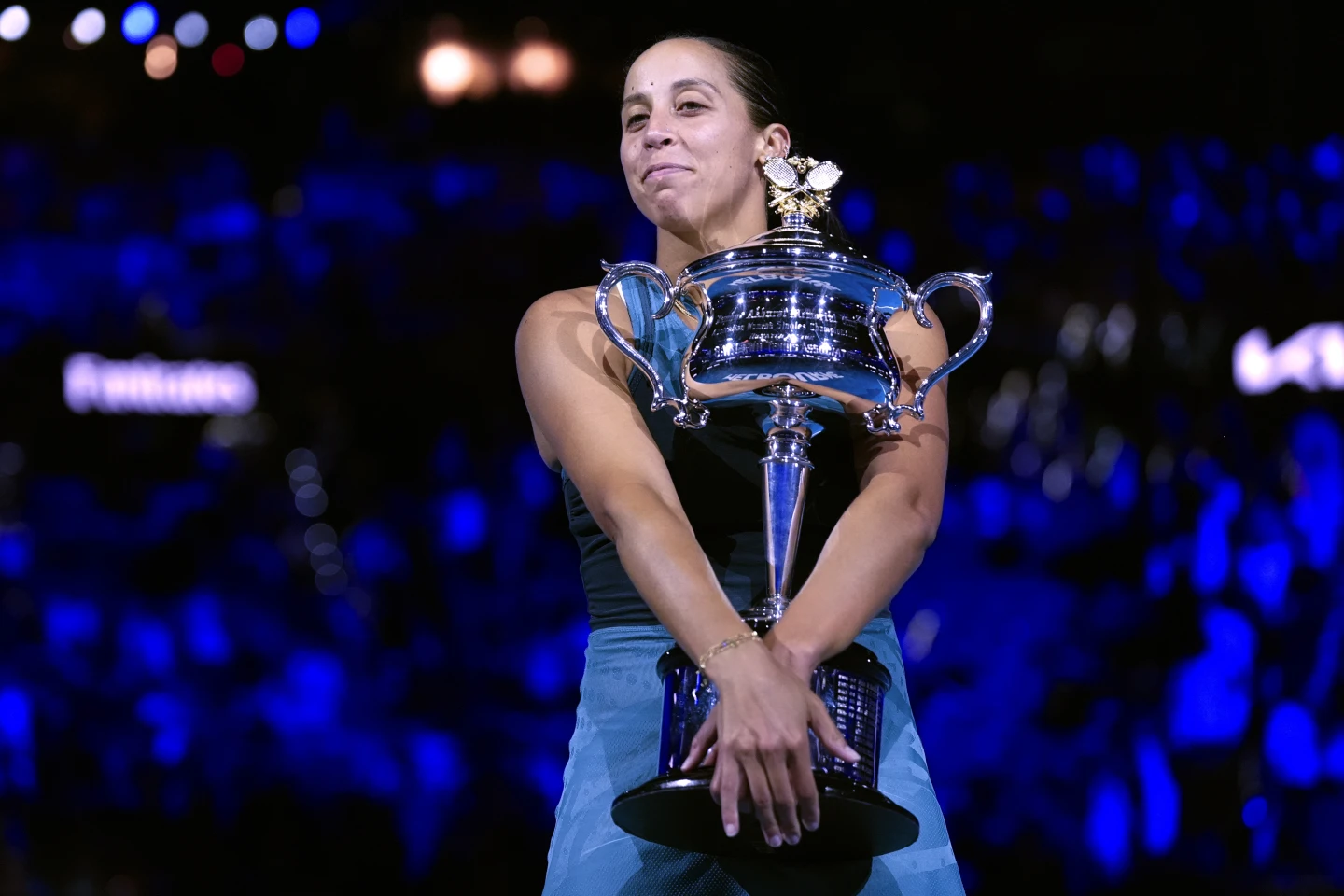The first person Madison Keys contacted after winning the Australian Open and securing her first Grand Slam title on Saturday was her mother.
“Because,” Keys said with a smile, “of course you have to text Mom first.”
Another person the 29-year-old American reached out to was her therapist. Keys believes their talks over the past year and a half have helped her in many aspects of life, including understanding herself, figuring out what really matters, and dealing with challenges on the tennis court. This included learning to accept nervousness during matches and realizing that she would be okay even if she never won a major title.
In an interview with The Associated Press on Saturday, Keys explained that she and her therapist “talked a lot” during this trip, especially after a close win over qualifier Elena-Gabriela Ruse in the second round.
“I called her and said that I was kind of just dealing with some things. And we were able to talk,” Keys shared. “And then we kind of just continued to text since then.”
They usually speak once a week or every other week during the season when possible.
“There’s also the reality of: Sometimes, I’m like, ‘Hey, I need to talk mid-tournament,’” Keys said. “Sometimes it’s even just being able to go back and forth (with) someone that can just kind of provide some support.”
Keys first tried speaking with a sports psychologist when she was about 18 or 19, and later worked with others, but never found someone she really connected with.

“Never really found anyone that I quite connected with and clicked with,” she said. “And then, I finally kind of pivoted and went with my current therapist.”
After her 6-3, 2-6, 7-5 victory over No. 1 Aryna Sabalenka, Keys talked about how therapy helped her get past doubts that had held her back from performing her best in the past. One of those was worrying that if she never won a major title, she wouldn’t meet others’ expectations.
For Keys, the process was about “just being really honest and actually getting help and actually talking to someone — and not just about tennis, but about how I felt about myself. Again, very uncomfortable. I never really like to be uncomfortable. I honestly think that had I not done that, then I wouldn’t be sitting here.”
She pointed out that the WTA women’s tennis tour has therapists available at tournaments and said that this kind of support could be helpful to more people — not just professional athletes.
“The stigma around therapy, in general, not just in sports, I think, is slowly starting to go away. I think that everyone should be in therapy, no matter what. I think it helps,” Keys said. “No matter what’s going on in your life, you’re going to have moments where things are tough and you need someone to talk to. I think it’s very important.”
She added, “It’s something I will continue to do for the rest of my life. If more people do it and more people talk about it, then it just kind of becomes the norm. It’s almost as if you’re going to the doctor. No one bats an eye at that. I think it’s just kind of overwhelmingly needed for most people.”
